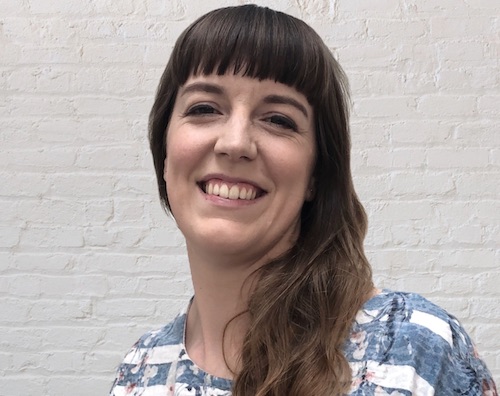I was diagnosed with ADHD in the summer of 2018, and I was prescribed methylphenidate, a common stimulant medication to treat Attention Deficit Hyperactivity Disorder. My doctor told me that I should take my medication “only when needed.”
My immediate question was, of course, “How do I know when I need it or not?” The reply was, “Most people take it on school or work days, then have a break at the weekend.”
This seemed to make sense at the time. It’s important to stay focused and productive at school or at work. But when you have a day off, there’s not so much need for it. Right?
Wrong.

ADHD affects us just as much at home as it does at school or work.
ADHD doesn’t miraculously switch off on a Friday night, only to return the following Monday. You always have ADHD. And just because it’s the weekend doesn’t mean you want to goof around the whole time. Chances are you have housework to do, errands to run, projects to work on, friendships and relationships to cultivate, and so on. Why are these things any less important than productivity at school or work?
Newsflash: They aren’t less important, they’re actually more important.
You could be doing well at work but your house is a mess and your spouse is frustrated with you. You might be excelling at school but your friendships are suffering and you have no idea what your life goals are. How are these healthy situations? Why do we accept this bias towards one area of life and not others?
I strongly suspect this stance is tied to our unhealthy culture of productivity and achievement at the expense of mental and physical health, combined with the enduring stigma around stimulant medication.

There is a strong stigma associated with taking medication for mental health.
There seem to be three major areas that create or exacerbate our unwillingness to take daily stimulant medication:
1. ADHD Treatment
ADHD treatment and guidance traditionally focus on limiting the impact of our condition on others, rather than our own internal struggles. For example, the DSM-5 (the diagnostic manual for psychiatric conditions in the USA) doesn’t even mention emotional dysregulation as a symptom, despite it being the number one reported life-limiting issue amongst adults with ADHD.
Conversely, the list of external symptoms that affect those around us actually make up the primary means of diagnosing ADHD. Things such as:
- Makes careless mistakes
- Leaves seat in situations when remaining seated is expected
- Does not seem to listen when spoken to directly
- Loses things necessary for tasks or activities
- Interrupts or intrudes on others
There also seems to be an aversion amongst doctors, parents, and even patients to prescribing daily stimulant medication—especially to children—despite the evidence showing that stimulant medications are very safe and effective for the vast majority of patients when taken at the prescribed dose.
I was very hesitant to try medication when first diagnosed because of all the things I’d heard about it—it’s addictive, you build up a tolerance and keep needing more, it’ll turn you into a zombie, it’s bad for your heart—none of which were actually well-founded concerns*.

Your meds won’t do this to you.
I suspect that by telling us to take our medication “only when needed,” doctors are trying to alleviate these parent and patient concerns. Taking a medication break for two days out of every seven somehow seems so much healthier than being on something every single day.
Unfortunately, this also contributes to the view that school and work are a bigger priority than our home life, emotional wellbeing, and personal development.
2. Ourselves
Those of us with ADHD are already more likely to be “people-pleasers” and are usually very good at limiting the impact of our ADHD on other people at the expense of our own comfort. Therefore, we go along with the theory that taking medication “only when needed” means prioritising our school or work life over our personal development and wellbeing.
We may also have a tendency for perfectionism. We want to be the model student or the high-flying businessperson, we want to be successful and productive, and we want to avoid disappointing our bosses, teachers, or parents.

Saying yes to others over ourselves is a result of our eagerness to please.
We may not be particularly confident in advocating for our own needs. There are likely several reasons for this, including our tendency to internalize the negative stereotypes surrounding ADHD, our difficulty in seeing ourselves realistically due to limited self-evaluation skills, and an overall lack of confidence or ability to effectively express exactly what it is we need.
We end up listening to what other people tell us we need to work on—our focus, our ability to sit quietly, learning not to interrupt—and make their problems our problems. Meanwhile, we’re neglecting our own needs and ignoring the real internal struggles we face every day.
3. Society
We live in a culture that strongly emphasises the value of people only when they are productive, particularly at school or in the workplace. Often this comes at the expense of our emotional and physical wellbeing as we push ourselves to meet expectations.
When people encourage us to take our medication “only when needed,” and the definition of that is almost always “only when you have school or work,” what people are actually saying—whether they realize it or not—is that we should take our medication primarily when it benefits others.

It benefits teachers and other students to not be disruptive, but what about you?
Taking medication to help with focus at school benefits you, of course. But you’re also a less disruptive student, allowing the rest of the class to get on with things. You’ll also likely get better grades, which again is good for you, but also benefits the school and society at large when you become (in theory) more successful with those better qualifications.
Similarly, taking medication to allow for greater productivity at work benefits you, but it also means that you’re outputting more for the company, your colleagues find you easier to deal with, and you’re less of a bother.
Again, these benefits are absolutely a good thing, but why are they more important than your home or social life? Your emotions? Your ability to work towards the goals you choose to set for yourself?

It’s important to work on your personal goals just as much as your school or work ones.
By continually emphasizing the relative importance of success at school or in the workplace, what is that teaching us? What is it teaching our children? That pushing ourselves at school or work but neglecting our home and social lives is normal. Or even a good thing?
Is that really, truly, what we want? Because that’s the message we’re currently sending when we subscribe to that “only when needed” methodology.
I received my diagnosis in the USA, where I lived at the time. When I returned to the UK in 2019 I managed to get my methylphenidate prescription transferred over from the USA, but my doctor was baffled by the “take only when needed” mentality. He said he’d never prescribed it that way.
He explained that since ADHD affects daily life in every way—not just at school or work—I should take it every day. Now, instead of just noticing the benefits at work, I’m seeing those benefits in my social life, my relationships, my home life, and my ability to set meaningful goals for myself.
Whatever helps you with your school or work life can—and should—be applied to your personal life, too. You deserve to use all the tools available to you to work towards your own personal development.
If medication is helping you better regulate your emotions, manage your time, plan and initiate tasks, and set meaningful goals for yourself, talk to your doctor about using your prescription medication every day if you aren’t already.
You deserve to feel happier, more stable, more “on top of things,” and take control of your own future. If medication is helping you at school or work, why not allow it to help you in your personal life, too?
*ADHD stimulant medication isn’t for everyone. Different medications have different effects on every individual, and it can take time to find what works for you. ADHD stimulant medication can be bad for your heart if you already have underlying heart conditions. ADHD stimulant medication can be habit-forming if it’s taken in doses far higher than any doctor would prescribe. ADHD stimulant medication can lose its efficacy over time for some people, but taking “medication holidays” two days a week as a preventative doesn’t seem to make it less likely—either tolerance buildup will happen or it won’t. There are solutions to tolerance buildup that you can discuss with your doctor should it happen to you, such as changing medication type.
About The Author:

Diagnosed with ADHD as an adult after a near-breakdown, Elizabeth decided to make it her mission that nobody with ADHD should ever have to go through life without the ability to understand and harness their powerful mind.
Through her website, social media channels (Facebook, Instagram, Pinterest, Twitter), coaching, and an upcoming book, she helps individuals with ADHD to find success at school and work, see improvements in their relationships with friends, families, and romantic partners, and raise their self-esteem, enabling them to see that their ADHD isn’t a problem to be fixed, but a difference to be embraced.





Leave A Comment
You must be logged in to post a comment.